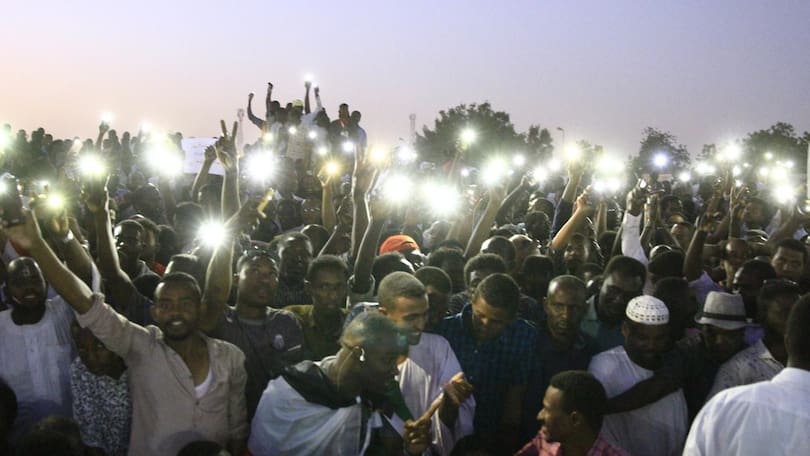Sudanese protesters who have been agitating for civilian rule were taken aback when the African Union (AU) extended the deadline it had given to the Transitional Military Council (TMC) to hand over power. The AU has now given the military council three months to do so.
Shortly after the TMC overthrew former president Omar al-Bashir on April 11, the AU had warned that Sudan risked losing its membership of the body if power was not handed over to civilians authorities in 15 days.
Simultaneously, civilian groups, whose months-long protest had forced the military to intervene against al-Bashir, were demanding that the military relinquish power. Thousands continue to take part in a sit-in demonstration before the general command of the armed forces in the capital city of Khartoum.
However, negotiations regarding the transfer of power between the TMC and civilian forces broke down on April 21.
The Declaration of Freedom and Change Forces (DFCF), which represents the various civilian forces that took part in the protests, accused the TMC of being “insincere” in their negotiation. The Sudan People’s Liberation Movement-North (SPLM-N) – the armed rebel group which has declared a ceasefire until the transition of power to civilian authorities – pointed out that the head of the TMC’s political committee and his deputy are both islamists. They were invested in reproducing the old regime, even if a new face took over the leadership, the SPLM-N pointed out.
A senior member of the Sudanese Professionals Association – an umbrella body, including trade unions and organizations of doctors and lawyers – complained that the TMC was seeking to dilute its stance by equating “the opposition with some of the political forces that were part of the old regime” and never participated in the uprising.
Just as the DFCF called for continuation of the sit-in demonstration till a complete transfer of power was effected, the TMC warned the protesters that it will be clearing the streets around the army’s general command and the Defense Ministry, which have been occupied for over two weeks now.
However, the protesters vowed to hold their position, and the sit-in demonstration swelled into hundreds of thousands of people. From the railway town of Atbara, where the uprising began sparked on December 19, hundreds rode to Khartoum in what they called the “freedom train”, and joined the demonstrations with food and other supplies to distribute at the sit-in. The army chief heading the TMC, Lt-Gen Abdel Fattah Abdelrahman Burhan, then said on April 23 that soldiers will not use force against demonstrations.
It is amidst all this that the AU has decided to ease pressure on the Sudanese authorities. The rotating presidency of the AU is currently held by the Egyptian president Abdel Fattah el-Sisi.
El-Sisi recently consolidated his position in In a referendum marred by irregularities. The constitutional amendments that enable him to stay in power till 2030 are seen by critics as a fearful response to uprisings in Sudan and Algeria, where presidents were overthrown.
Only last month, as al-Bashir was overseeing a campaign of repression and torture of protesters, el-Sisi shook hands with him and expressed his support.
Days before al-Bashir’s downfall, the el-Sisi-led government had assured him of a safe haven in Egypt. Omar al-Bashir was convicted by the International Criminal Court of war crimes, crimes against humanity and genocide.





